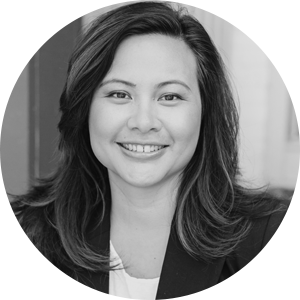1. Save your credit score first

If you haven’t already paused your mortgage or credit card payments, and you’re afraid you may not be able to make the next one, call your lender and let them know.
Every time you skip a payment without informing them, your misstep will be reported to the credit bureaus and your score will take a hit. A lower credit score would mean worse rates on a loan when you really need one, and you could even be refused outright.
“There shouldn’t be an impact to your credit score if you had an interview with your lender and they approved your deferral,” says Gray. “And remember, you are also deferring interest and you will have to pay that back eventually, too.”
As soon as you get your deferral agreement, read the fine print and ask any questions about your repayment terms before signing on the dotted line.
Finally, take advantage of a free credit monitoring service, like Borrowell, that will inform you if a missed payment has been counted against you by mistake.
Empower your investments with Qtrade
Discover Qtrade's award-winning platform and take control of your financial future. With user-friendly tools, expert insights, and low fees, investing has never been easier.
Start Trading Today2. Ditch high-interest debt

Once you’ve run up your credit cards or line of credit, getting out of the red can seem impossible, especially if you’ve lost your job or live on a reduced salary.
Even so, you need to come up with a plan to pay it down. The longer you wait, the worse it will get.
“The key is accepting that your debt isn’t going to go away overnight,” says Gray. “For example, if you owe $5,000 on a line of credit and you can afford to pay $100 a month, then you know it will take approximately four years to pay off.”
There’s no quick fix, but there are strategies to pay down debt quicker and save money on interest.
For example, you might consider paying off all of your high-interest credit cards by taking out one, low-interest personal loan. Loans Canada is a convenient website that makes it easy to find the personal loan that will save you the most money.
3. Maximize your income

If you haven’t done so already, it’s time to shift your budget to match your COVID-era cash flow, lifestyle and debt. Tally up what you make, including any government assistance or grants, and create a spending plan that fits your lower income.
Begin with the essentials — food, shelter and transportation — and then layer in debt repayments.
From your remaining income, Gray says, put some aside for an emergency fund. This way you don’t have to rely on credit when another financial hit comes along.
To make the most of that money while it’s sitting around unused, be sure to park it in a high-interest savings account. Online institutions like EQ Bank typically offer much better rates than the big banks.
When portioning out your money, try to hold on to at least one fun habit to help you stay Zen while your anxiety is high. Instead of going to the gym, try online classes or video subscriptions, which cost a lot less than paying for a membership.
Unexpected vet bills don’t have to break the bank
Life with pets is unpredictable, but there are ways to prepare for the unexpected.
Fetch Insurance offers coverage for treatment of accidents, illnesses, prescriptions drugs, emergency care and more.
Plus, their optional wellness plan covers things like routine vet trips, grooming and training costs, if you want to give your pet the all-star treatment while you protect your bank account.
Get A Quote4. Review every payment

Take a day and call your providers. You’ll be on hold most of the time, but it’ll be worth it when you free up cash to pay down your debt.
Review your cable and wireless accounts and ask about a promotion or loyalty discount. If you’re not using as much phone data because you’re mostly on Wi-Fi at home, downgrade your wireless service to save an extra few bucks a month.
Shop around for your home and auto insurance. Ask about bundled rates or discounts with your current company or, even better, search an online insurance service for a better deal. You only need to submit your info once to get quotes from multiple providers.
Finally, reduce or turn off any automatic deposits to your TFSA, RRSP or robo-advisors.
Just make sure to start investing again as soon as you have the wiggle room so you’re on better financial footing in the future. A service like Wealthsimple is a great way to get some money in the market with lower risk. There's no minimum deposit and if you use this special link to sign up, you'll get an additional $50 invested for free once you've deposted $500.
Trade Smarter, Today
Build your own investment portfolio with the CIBC Investor's Edge online and mobile trading platform and enjoy low commissions. Get 100 free trades and $200 or more cash back until March 31, 2025.








